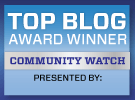James is a 13-year-old boy who has been hanging around with friends that have parents that throw drinking parties every weekend. Now James parents drink but not very often, so he is not a stranger to alcohol. One weekend he asks his parents if he can go and spend the night at his friend Tom’s home. They agree. Tom’s parents are having a party as usual. James is introduced to the taste of his first beer. In addition, he really likes the taste and how it makes him feel. James is now on the road to alcoholism. Of course he doesn’t know it as of yet. Let us fast forward a few years.
James is now out of high school and in his first year of college. He has learned that a couple of beers will make him able to talk to other people without being shy or reserved, that it makes him feel better than he has in a long time, and that it helps him sleep. He has a few friends that drink with him but he always drinks them under the table and he never seems to get enough. James only drinks on weekends because of his schoolwork so he feels that it is not affecting him any. Fast forward, another year or two he is about 21 now and drinks on weekends and on Wednesdays just to get by. He hates the feeling that he has when not drinking and at this age it already hurts not to drink and just a day or two between drinking is just about all he can stand. James, at this point does not yet realize he is an alcoholic.
At the age of 23 he has been in his first car wreck and his first DUI, spent the night in jail, and has to call his parents to bail him out. James experiences for the first time how it feels to be a criminal. His car is a wreck but drivable but what do you think happens? Do you think that this first experience with the law will stop him? No, he is remorseful, sorry, upset at himself but after a few weeks he is back to drinking again.
James is now out of high school and in his first year of college. He has learned that a couple of beers will make him able to talk to other people without being shy or reserved, that it makes him feel better than he has in a long time, and that it helps him sleep. He has a few friends that drink with him but he always drinks them under the table and he never seems to get enough. James only drinks on weekends because of his schoolwork so he feels that it is not affecting him any. Fast forward, another year or two he is about 21 now and drinks on weekends and on Wednesdays just to get by. He hates the feeling that he has when not drinking and at this age it already hurts not to drink and just a day or two between drinking is just about all he can stand. James, at this point does not yet realize he is an alcoholic.
At the age of 23 he has been in his first car wreck and his first DUI, spent the night in jail, and has to call his parents to bail him out. James experiences for the first time how it feels to be a criminal. His car is a wreck but drivable but what do you think happens? Do you think that this first experience with the law will stop him? No, he is remorseful, sorry, upset at himself but after a few weeks he is back to drinking again.
